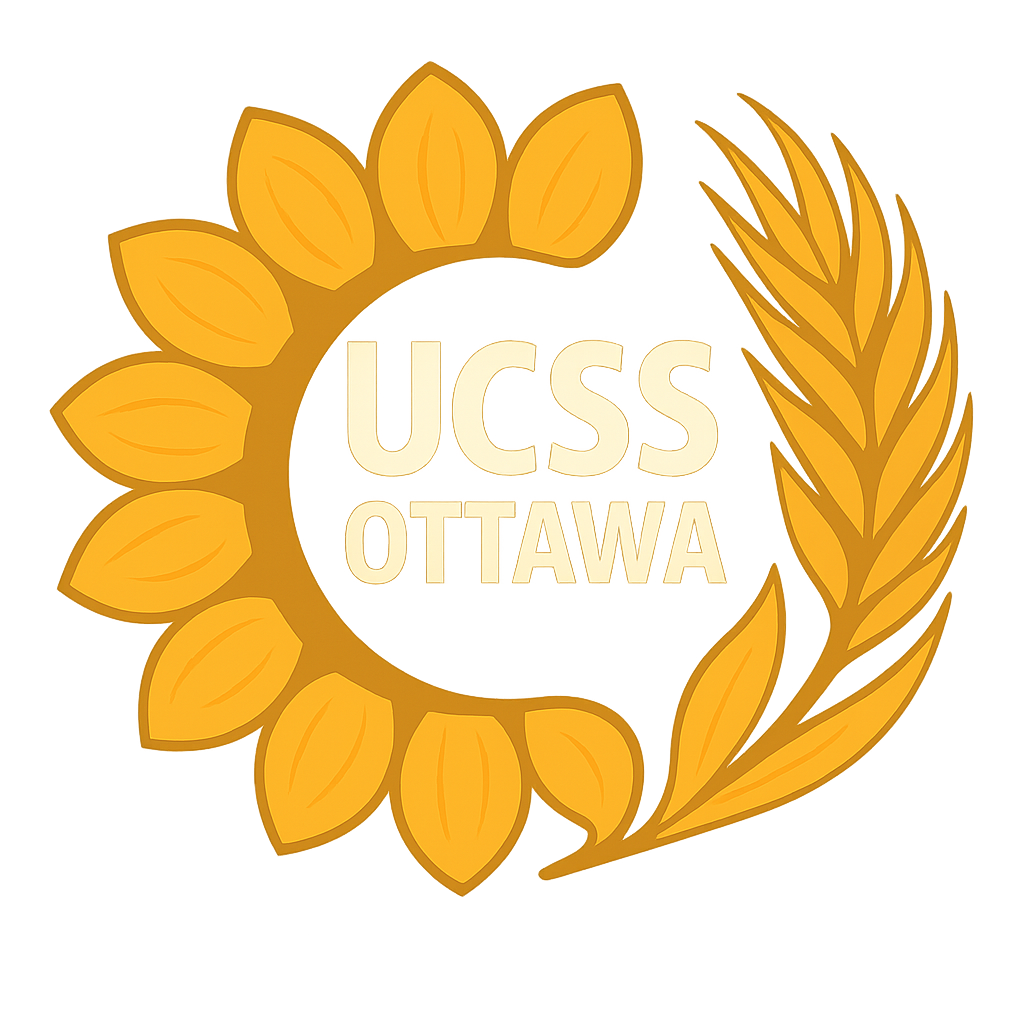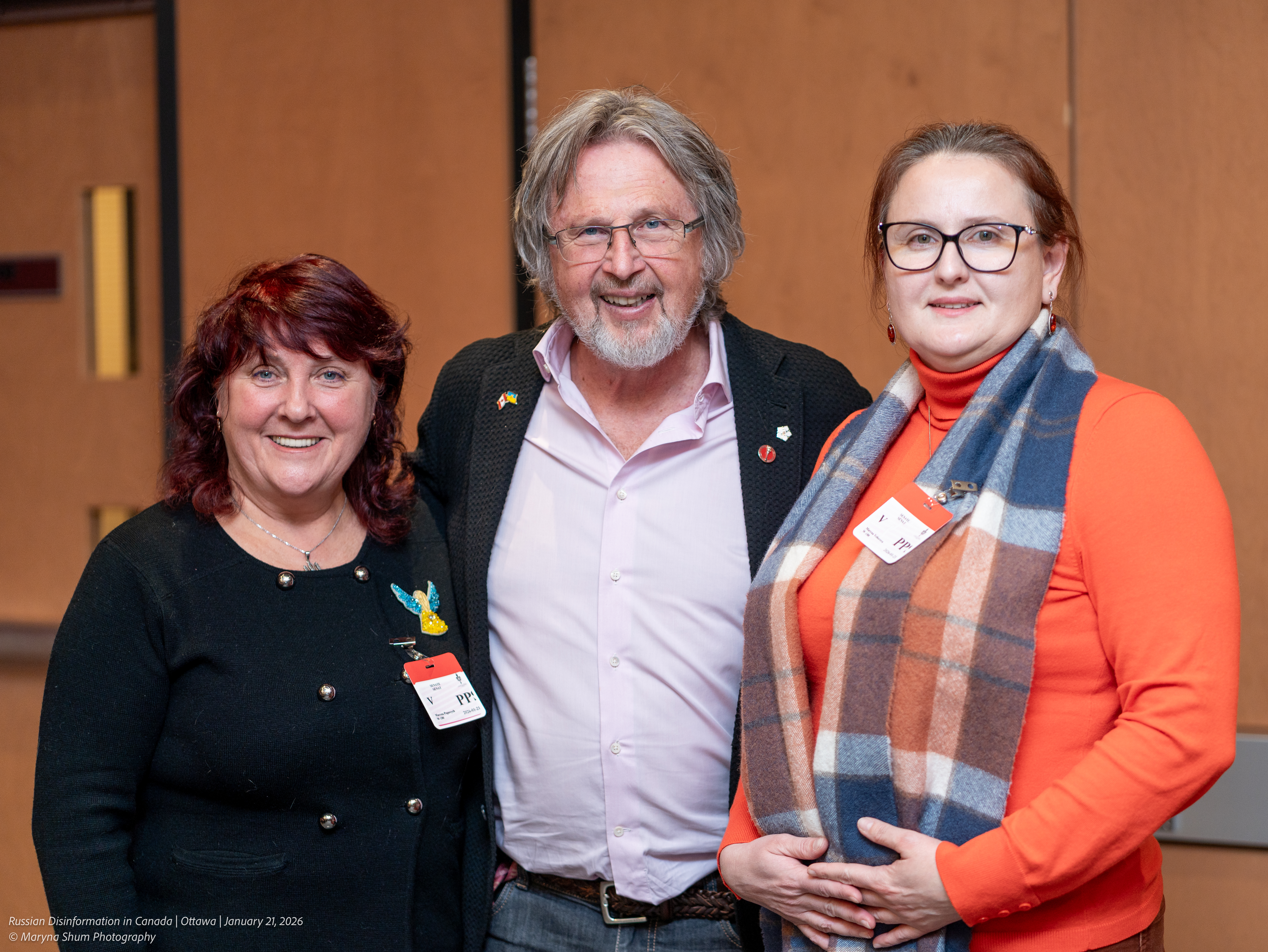
Summer camp for Ukrainian children displaced by war, a place where “kids can just be kids”
Sunflower Camp, now in its second year of operation, is a place where Ukrainian children can enjoy the peace and calm of nature while surrounded by others who have known the trauma and dislocation of war.
Organized by volunteers from the Ottawa branch of Ukrainian Canadian Social Services, and sponsored by the Ukrainian National Federation of Canada, the camp is infused with Ukrainian culture - its food, language, art and music.
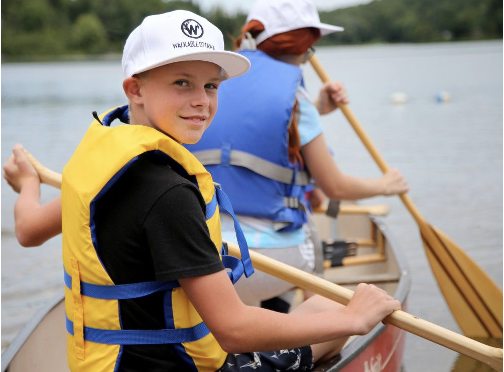
Camp director Michael Ryndzak says organizers have learned not to program too much into each day so that children can just be with each other while enjoying camp staples such as canoeing, swimming, hiking and bonfires.
“We want to create a situation for them to bond, to meet one another, and have a chance to open up and relax”, he says. “We learned we don’t have to impose too many programs. Let nature do its trick. Let the kids be kids.
Anna is one of 35 campers here; all of them are children displaced from their homes and their country by the war in Ukraine. Anna grew up in Hostomel, a small town 10 kilometres northwest of Kyiv, that was the scene of fierce fighting early in the war.
Her family managed to escape, and is now in Ottawa where Anna attends Pinecrest Public School. She misses her friends and teachers in Ukraine, along with the dogs and cats she knew there, but Sunflower Summer Camp has introduced her to new friends and different animals.
“My favourite thing to do here is to carry the frogs,” she says of her camp experience. “I like Canada’s birds and squirrels.”
Anna’s new friend, Yaryna, 9, who’s from Kharkiv, Ukraine, is partial to the camp’s sporting events. “I like swimming here and doing gymnastics,” she says. “And I want to do more canoeing.”
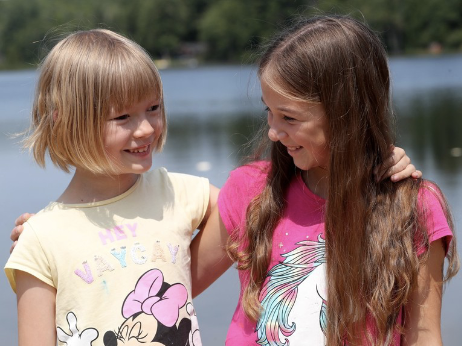
Eight-year-old Anna (left) and Yaryna, 9, have become fast friendswithin a day or two at the camp
Organizers face some unique challenges given the complexity of their campers’ lives. Many are living without their fathers, who remain in Ukraine to fight or to work. Most are living with with host families. Few are certain what the future will bring.
An Ottawa psychologist, Marina Yakovenko, is among the volunteer staff. She says many of the children are wound tight emotionally when they arrive at camp since they’ve lived with stress and uncertainty for so long. “None of these children have been prepared to face the psychological challenges of relocation because everything happened so fast,” Yakovenko says.
“Many are so lonely” she says “since their English is rudimentary, and most of their friends and relatives are still in Ukraine. At this camp we are trying to give them a glimpse of the childhood they have been deprived of.”
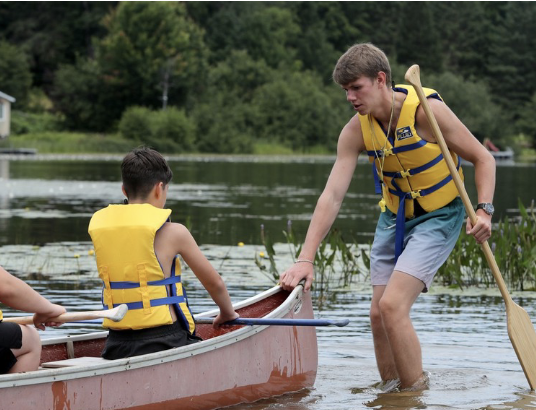
Mykyta Zakharchenko gives some campers a hand on a canoe trip.He is one of the young leaders at the camp who has been displaced byRussian occupation in Ukraine since he was six years old. He’s now on his own in Canada at the age of 17 and knowswhat many of these kids have seen.
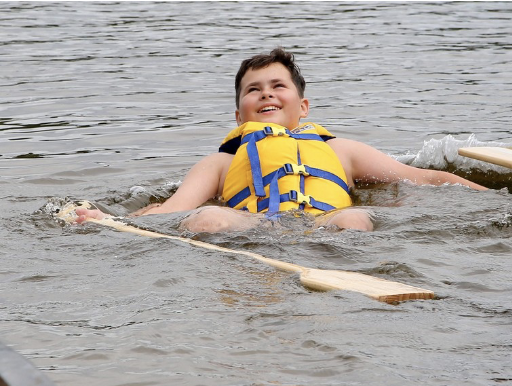
Just the simple joys of camp. Young Vitali, 12, loves to swimand dives in every chance he gets.
The camp has 15 counsellors, a mix of adults and teenagers, many of whom also fled the war in Ukraine.
Yakovenko has twice fled the Russian invaders. Born and raised in Yalta, a city on the south coast of the Crimean Peninsula, she moved to Lviv after Russians occupied Crimea in 2014, then moved to Canada last year after the Russians invaded Ukraine in February 2022.
Camp counsellor Kira Krustalova, 16, arrived in Ottawa with her family last May after leaving their home in the Ukrainian port city of Odessa. She came to Canada by way of Moldova and France.“We didn’t know what was going to happen: where we are going, what is going to be, and how we’re going to be,” says Krustalova, who now attends Gatineau’s Philemon Wright High School.
Given her own experience, Krustalova understands what her campers are going through. “It’s very hard for them and we are trying to make them a little bit happy,” Krustalova says. “Many of them are still very shocked. We want to make them a little bit more open because many of them are closed. We know why, we know why. We want to open their hearts”.
“The camp’s emphasis on Ukrainian culture makes the children feel more comfortable”, she says, and makes it easier for them to form new friendships. Everyone speaks Ukrainian
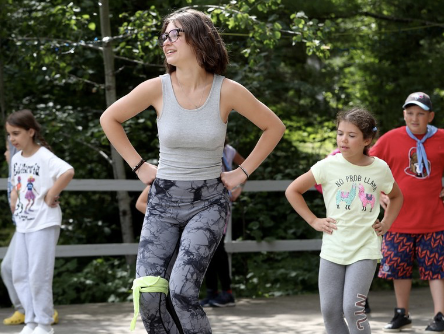
A camp leader teaches the kids a flash mob dance that they’ll perform for their parentswhen they come on the last day of camp.
Camp counsellor Vlad Zhovtykha, 17, says he wants to help the children “forget about the world for one week”. Zhovtykha’s entire family remains in Kyiv, Ukraine. His mother and sisters came to Canada with him last year but, homesick, they have since returned. Zhovtykha stayed behind and plans to attend St. Patrick’s High School this fall.
Camp counsellor Mykyta Zakharchenko, 17 travelled alone to Canada from Cherkasy, Ukraine last year. “The only English I knew was, “My name’s Mykyta, I am tired, and I am hungry” he says.
Now a Grade 12 student at Glebe Collegiate Institute and a competitive rower, Zakharchenko wants to help his fellow Ukrainians adjust to their new world. “The thing I like about this camp is the calm, the safety,” he says “The kids can just be kids.”
After a successful launch last summer, the camp was over- subscribed this year with a waiting list of more than 20 children. Ryndzak says he hopes to develop more social events for Ukrainian children so that newly-formed friendships, like the one between Anna and Yaryna, can continue to grow.
